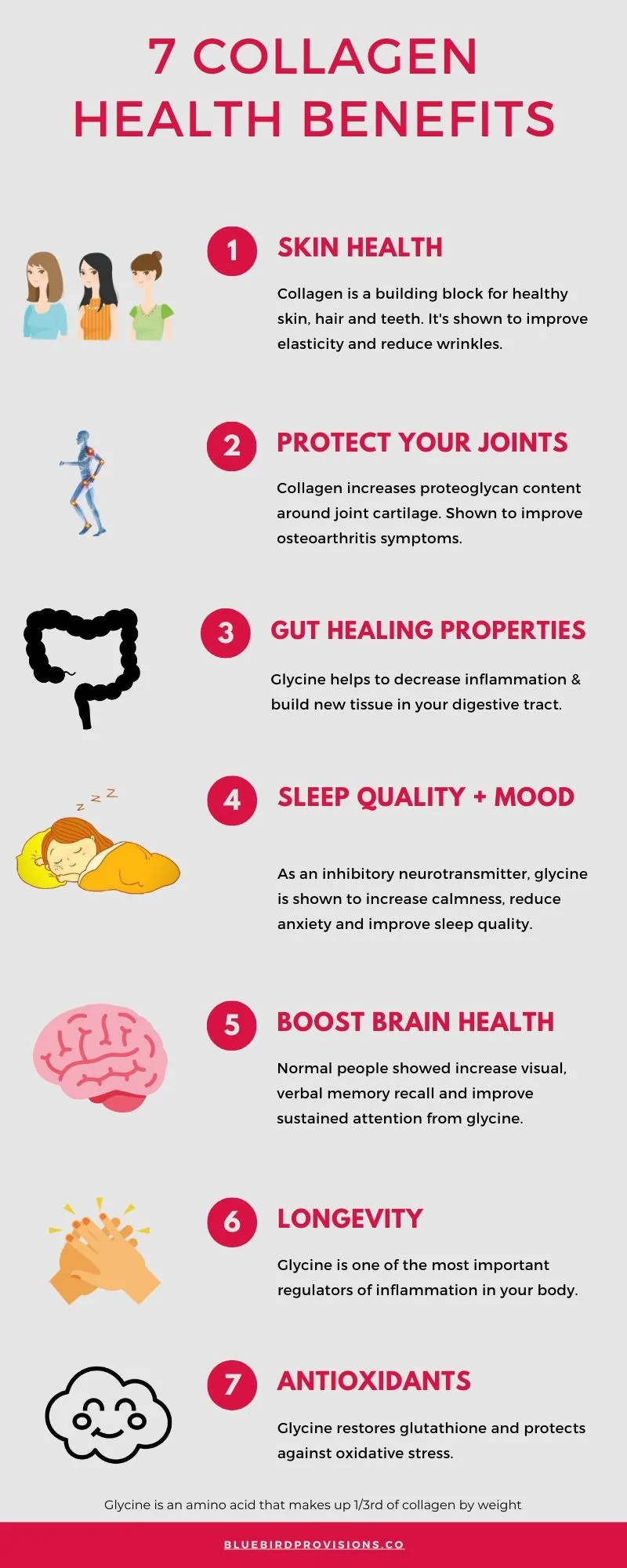Can Collagen Supplements Cause Anxiety Symptoms?
Can collagen supplements cause anxiety? As someone who takes a lot of supplements, I was surprised to learn that one of the most popular ones – collagen – could possibly cause anxiety.
After doing some research, it turns out there is some science to back up this claim.
So, can collagen supplements cause anxiety?
Here's what you need to know.
Table of Contents
What are Collagen Supplements?
As we age, our bodies produce less and less collagen. This decrease in collagen production can cause a number of age-related issues, such as wrinkles, thinning skin, and joint pain.
Many people turn to collagen supplements in an effort to combat these effects of aging.
But can collagen supplements cause anxiety?
Research suggests that collagen supplements may actually help to reduce anxiety.
One study found that participants who took a collagen supplement for eight weeks had lower levels of the stress hormone cortisol than those who did not take a supplement.
Cortisol is known to contribute to anxiety and stress.
Just be sure to talk to your doctor before starting any supplement, as they can help you determine if it is right for you.
Can Collagen Supplements Cause Anxiety?
If you're interested in taking collagen supplements to improve your health, you may be wondering if they can cause anxiety.
While there is no concrete evidence that collagen supplements cause anxiety, there are some potential risks to be aware of.
First, it's important to understand that collagen is a protein found in the skin, bones, and connective tissues of animals. It's often used in supplements in powder form, and it's also found in some skincare products.
Some people take collagen supplements for the purported health benefits, which include improved skin health, reduced joint pain, and stronger bones.
However, there is no scientific evidence to support these claims.
There are also some potential risks associated with taking collagen supplements.
For example, they may contain heavy metals or other contaminants.
Additionally, some people may be allergic to collagen.
If you're considering taking collagen supplements, it's important to speak with your doctor first to discuss the potential risks and benefits.
How Do Collagen Supplements Work?
Collagen supplements are designed to help improve the health of your skin, hair, nails, and joints. They work by providing your body with the building blocks it needs to produce more collagen, a protein that plays a key role in these tissues.
While collagen supplements can offer some benefits, it's important to keep in mind that they're not a cure-all.
There's no evidence that they can completely reverse the signs of aging or prevent all diseases.
Additionally, some people may experience side effects from taking collagen supplements, such as stomach discomfort, diarrhea, or constipation.
If you're considering taking a supplement, it's important to talk to your doctor first to make sure it's safe for you.
Who Should Take Collagen Supplements?
Collagen is the most abundant protein in your body, and it's responsible for giving your skin its youthful appearance. But collagen does a lot more than just keep your skin looking good.
It's also responsible for the health of your joints, bones, and gut.
So, if you're looking for a way to boost your overall health, you should consider taking a collagen supplement.
But who should take collagen supplements?
Just about anyone can benefit from taking a collagen supplement.

(Source)
If you have any of the following health concerns, you may find that collagen can help with:
- Joint pain
- Osteoarthritis
- Osteoporosis
- Digestive issues
- Skin problems
- Skin aging
- Wrinkles
- Fine lines
- Dry skin
- Brittle nails
- Thinning hair
If you want to experience the health benefits of collagen, but you're not sure which supplement to take, we recommend collagen peptides.
Collagen peptides are hydrolyzed collagen, which means they're easily absorbed by the body. They're also flavorless, so they can be added to just about anything.
Look for collagen supplements that are GMO-free, gluten-free, and dairy-free.
Side Effects of Collagen Supplements
There are a lot of people who are interested in taking collagen supplements. This is because collagen is a protein that is responsible for the elasticity and strength of our skin. It also plays a role in the regeneration of cells.
As we age, our bodies produce less collagen, which can lead to wrinkles and sagging skin.
While collagen supplements are generally safe, there are a few potential side effects that you should be aware of.
One of the most common side effects is an upset stomach. This is usually due to the fact that collagen is derived from animal sources.
If you are vegetarian or vegan, you may want to avoid collagen supplements.
Another potential side effect is headaches. This is thought to be due to the fact that collagen is a large molecule and it can't be easily absorbed by the body.
Lastly, some people may experience an allergic reaction to collagen supplements. This is most likely to occur if you are allergic to fish or eggs.
If you experience any of these side effects, you should stop taking the supplement and consult your doctor.
Conclusion
Can collagen supplements cause anxiety? It's important to remember that everyone is different and will react differently to supplements. If you're considering taking collagen supplements, it's always best to speak with your doctor first.
With that said, science does suggest that there is a possibility that collagen supplements could cause anxiety in some people. So if you're prone to anxiety or have had issues with anxiety in the past, it might be best to avoid this supplement altogether.








